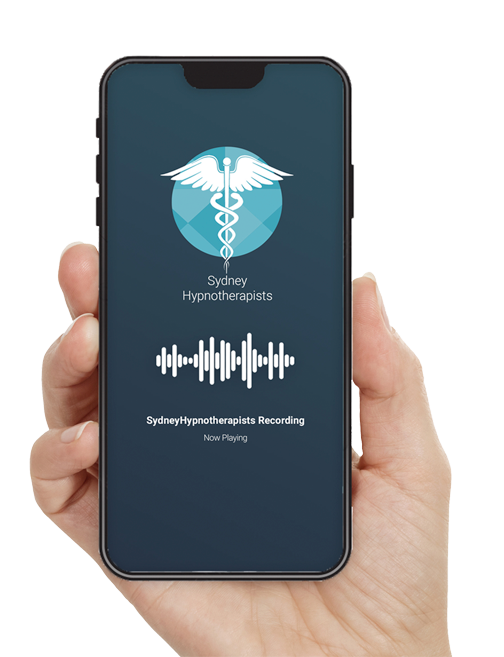TRANSFORM YOUR LIFE TODAY
Beat Anxiety
With Hypnosis
A gentle, non-invasive
SOLUTION to Anxiety
SOLUTION to Anxiety


20 Minutes Discovery Session
Learn how we can help, and if you and your therapist are a good fit without even leaving home.


Book Your First Session
Discover what we can achieve in just one session. Decide if you want to complete the preferred 6 sessions.


Complete Your Programme
Do your sessions and complete any homework your therapist gives you, like listening to your session recordings. Repetition builds skill.


Live Your Best Life
Apply the skills and tools you learn to make anxiety a thing of the past.
Anxiety Treatment Sydney Hypnotherapy
If you are suffering from anxiety it is something that you should really deal with. Prolonged periods of stress have potential consequences for your long term health. The good news is that our form of hypnotherapy is solution orientated, is a natural relief and we aim for minimal meetings when it comes to the treatment of anxiety and anxiety related issues.
WHY IS ANXIETY SUCH A COMMON PROBLEM?
If you are suffering from anxiety then you are not alone. We have such a fast moving pace of life and are under enormous pressure to deliver both professionally and personally. We are generally so “busy” and time poor and many of us simply do not know how to just sit still and take a breath. People are being asked to produce more with less resource more than at any time in the past. Technology has also had an influence. It is not uncommon for people to be answering emails at 10 o’clock at night or 6 o’clock in the morning, so work punctuates our entire waking lives, with the fear that if you don’t do this you run the risk of being overlooked for promotions or other opportunities. Unfortunately most people do not have the internal mechanisms to deal with the pressures of a modern world and their coping strategies can be tipped over the edge by setbacks like a change in workplace management, a redundancy, a relationship break up or they just hit the wall at some point because their worries become so perennial, that there is little respite.
THE EFFECTS OF ANXIETY
This often leads to a range of health issues like digestive issues, skin conditions, sleep disturbances, and even more serious issues that can be life-threatening by cancers and tumours. It can also lead to a series of behavioural issues like excessive drinking, smoking or other counter-productive coping mechanisms that can have serious consequences for not just health but for relationships.
UNDERSTANDING ANXIETY
The key to understanding anxiety is to understand that it is not a thing, it’s a process. It is in essence the fear of the unknown, and is a wholly internal process made possible by a series of cognitive distortions that you run. Effectively all anxiety is future based. People worry about what they fear might happen not about what has happened. The moment you’re worried about the future then you are responding to your own fabrications. You imagine catastrophe and then believe in it. It actually has very little to do with external circumstances. One way to look at anxiety is, “the overestimation of risk coupled with the underestimation of personal resource.”
WHAT IS ANXIETY REALLY?
All of us are capable of running anxiety at times, and at times it is an appropriate response to an external threat. However it becomes problematic when your risk assessment becomes skewed or hyper sensitive. Risk is in the eye of the beholder. Some people see no risk in bungee jumping or parachuting, whilst others consider it risky to try a new Thai restaurant.
HOW DO WE TREAT ANXIETY?
From our perspective, there are only certain ways that you can “DO” anxiety. All anxiety sufferers run a particular pattern. There may be some individual differences but overall it’s the same pattern. In fact before we meet you we already know that, in the problem space, you tend to over analyse things. You tend to catastrophise into the future and are often uncomfortable with the uncertainties of life. You tend to spend a lot of time in your head and use your feelings as an indicator of what is true and what isn’t. You know something is valid because you think it or you feel it. Likely you are also someone who leads towards being avoidant. For many people avoidance is the way they deal with problems and confrontations. They think about the problem and make the mistake of thinking that “thinking is doing”. Additionally, you probably have poor compartmentalisation skills. That is to say, you have trouble “parking” thoughts and feelings that don’t serve you, and this will often make it difficult to get to sleep at night because you do not know how to turn off your mind. If you lean towards being perfectionistic, have a high need for control, lean towards taking responsibility for others, or have a fairly strong self-critical internal dialogue, then you will be more prone to anxiety and depression than others.
WHY IS IT IMPORTANT TO TREAT ANXIETY?
Research has shown that prolonged periods of anxiety, if left untreated, can morph into depression. If you have been struggling with anxiety for over five years, then you are a strong candidate for clinical depression. It is extremely important that you tackle this problem head-on. Avoiding it means you risk significant and much more debilitating consequences down the track.
What Can We Do for You?
Our Team can help you because we understand
what you are going through, and we have a reliable solution
what you are going through, and we have a reliable solution
FREE Individual Recordings Directly to Your Phone
Good therapy teaches you to operate differently in the world. We give you a range of resources to help you discover a new way of being.
Access exclusive video library for tools and tips


Joanne
Binge Eating

Susan
Teeth Grinding & TMJ Pain

Cindy
Stress and Anxiety

Lizzie
Insomnia
“For years I struggled with a persistent pattern of binge eating. Together we unpacked how I was running my pattern and the emotional drivers behind it. With the counselling and hypnotherapy combined I have now stopped bingeing.”
“I booked to see Leona because I couldn’t stop grinding my teeth while sleeping. I then developed TMJ with severe facial pain. I saw Leona for three sessions of hypnotherapy. The sessions were extremely relaxing and after each session I gradually noticed a reduction in my grinding at night and overall better sleep. I would highly recommend Leona as a therapist and am now a firm believer in the power of hypnotherapy!!!”
“Today, I am a changed person. I no longer feel as stressed or anxious as I was; I recognize what matters to me and that my own needs are important without feeling guilty.”
“I went to see Leona as I was suffering from short-term insomnia. Leona is a true healer and provided immense and ongoing support to me. Within just two sessions I was feeling so relaxed and with the help of her recordings, I have been able to sleep again. Thank you so much Leona!”
FREEDOM AWAITS. TRY US RISK FREE
Book Your FREE 20 Minute Chat with the Therapist of YOUR Choice
The Benefits of Strategic Hypnotherapy
Unlike some therapeutic approaches Strategic Hypnosis focuses on getting long lasting results in as short a time as possible.
You do not need to spend a lot of time regurgitating your life story over and over again. We look at what you are doing, assess how to interrupt it, and hypnotically install an interruption to the negative thought, feeling or behaviour. Many people get significant results after just a couple of sessions, and get great results after just 4-6 sessions.Don’t waste another day. There is a cost to therapy, and there is a cost to not doing the therapy.
We can help you dramatically improve your life. Just book your FREE session and make a start.
Confidence
Web Designer
89%
Reduced Anxiety and Frustration
Web Designer
91%
Happiness and Effectiveness
Web Designer
86%
Frequently Ask Questions
Not sure yet? Here are the answers to some common questions
Strategic Hypnotherapy Differs from other forms of hypnosis because it addresses the perceptual filters that create the problem. Most hypnosis involves guided visualisations to calm you down and teach you how to relax.
There are plenty of forest themes and floating in calm blue oceans. While pleasant, it does not address the cause. It only addresses the symptoms. Strategic Hypnosis will address the way you see risk.
If you are hyper-vigilant, we will help you reality check. If you are overthinking a situation, I will help you recognise what is useful analysis and what is not.
The old chestnut that people believe they may not be hypnotisable is a hangover from traditional forms of hypnosis. Traditional or authoritarian Hypnosis tended to be scripted and to tell you what to do.
Modern forms of hypnosis will not tell you to do anything. I will offer you possibilities, and you can cherrypick what you want from the session. Because you have nothing to fight, there is no resistance and no concerns about not being able to be hypnotised.
Sydney Clinical Hypnotherapy offers a unique approach to mental well-being compared to traditional meditation and relaxation techniques. While meditation aims to bring calm to the mind and achieve a state of peaceful focus, hypnosis diverges significantly in terms of brain activity. The brain operates on various electrical wave frequencies, such as beta during alertness, alpha during relaxation with awareness, theta during somnolence, and delta during deep sleep. Hypnosis induces a distinct brainwave pattern that is neither akin to normal waking, sleeping, or meditation. Instead, it shares similarities with the alpha state, characterised by physical and mental relaxation combined with heightened awareness of one’s surroundings.
In contrast to the misconception of hypnosis as a zombie-like trance, it aligns more closely with meditation, albeit with a purpose beyond relaxation and inner peace. Hypnotherapy can harness the alpha state’s enhanced mental clarity and creativity to facilitate therapeutic changes. This approach demonstrates that hypnosis is not a mystical realm but a scientifically understood process that taps into the brain’s natural rhythms, offering unique benefits for those seeking to address various mental and emotional challenges through clinical hypnotherapy in Sydney.
In summary, clinical hypnotherapy in Sydney diverges from traditional meditation by reprogramming your cognitive patterns, helping you regain control of your mental and emotional state. This approach dispels the misconception of hypnosis as a trance-like state and instead emphasises its therapeutic potential for addressing a range of mental and emotional issues.
One common misconception about hypnosis revolves around the mistaken belief that the hypnotherapist holds control over the client’s actions and thoughts. This misunderstanding likely stems from portrayals of hypnosis in TV shows and performances by stage hypnotists. However, in reality, this notion couldn’t be further from the truth. All hypnosis is essentially self-hypnosis, and individuals cannot be hypnotised against their will. People under hypnosis will not do or say anything that goes against their normal behaviour or moral values.
Research conducted at the University of NSW by Dr. Amanda Barnier highlighted that hypnotized individuals do not transform into mindless robots or become powerless subjects of planted post-hypnotic suggestions in their subconscious. Some individuals genuinely experience a change in their persona during hypnosis, while others may convince themselves of it, and a small percentage may even fake it. To address clients’ fears related to this misconception, hypnotherapists often use questions like, “Could anyone talk you into doing something against your moral or ethical values, like robbing a bank or public indecency?” This helps clarify that hypnosis doesn’t override one’s principles or control their actions. Additionally, it’s pointed out that people can deviate from their moral values without the need for a hypnotherapist, such as engaging in drug use, theft, or cheating, illustrating the independence of individuals’ choices and behaviours.
Any person suffering from any degree of emotional or physical “dis-ease” can benefit from Clinical Hypnotherapy. The problems treatable through hypnosis are equally diversified. Although hypnosis is commonly associated with habit cessation (losing weight, quitting smoking, etc.), almost any area treatable by conventional means can be enhanced through the use of hypnosis. The well-trained clinician, using hypnotherapy can help clients suffering from the following –
Alcoholism, Anger, Anxieties, Asthma, Bed Wetting, Blood Pressure, Blushing, Breathing Disorders, Bulimia, Burns, Chronic and Acute Compulsions, Confidence, Dentistry, Depression, Eczema, Exam Nerves, Exam performance, Gambling, Gastro – intestinal Disorders, Goal Setting, Grief, Guilt, Habit Control, Headaches, Hostility, Insomnia, Memory Enhancement, Mood Swings, Nail Biting, Obsessive / Compulsive Behaviours, Obstetrics (hypnobirthing), Over Eating, Pain Control, Assertiveness, Communication, Pain management, Panic Attacks, Personal Growth, Phobias, Psoriasis, Public Speaking, Relationships, Relaxation, Releasing the Past, Resentments, Sexual Dysfunction, Skin Problems, Sleep Disorders, Smoking Cessation, Sports Motivation, Stress relief, Study Recall, Stuttering, Warts and Worry, even some forms of schizophrenia and multiple personality(DID) have been treated with hypnotherapy.
Hypnosis can be utilised in the treatment of most disorders, whether mental or otherwise, where the relaxation response promotes the person’s attitude. For example, with a physical injury, the person’s mental resources can be enlisted to aid in managing the subsequent discomfort, allow for some rest and lessen the associated emotional trauma. It must be noted that Hypnotherapy is not a replacement for medical treatment from a doctor. The most important determinant of the eventual success of the therapy is the true desire to get well.
A Clinical Hypnotherapist uses hypnosis to enable the client to achieve a state of mental, physical and emotional relaxation. When in hypnosis, the conscious mind (that busy, critical, analytical part of the mind) takes a rest. Hypnosis allows people to tap into the storehouse of information that lies in the subconscious, sometimes referred to as the unconscious, mind and make positive changes to thought patterns, habits or the effects of traumatic incidents that are having a negative impact either mentally or physically.
Each client may experience hypnosis differently relative to the technique being used and the psychology of the client. For some, it is a heightened awareness; for others, a profound relaxation. Sometimes the client hears every word the hypnotist says, and other times the voice fades in and out or becomes completely inaudible. In Ericksonian work, the client is never put under the “control” of the hypnotist. The client is always free to alter the hypnotic experience or awaken at will.
Hypnosis is a normal, naturally occurring, healthy state of mind. It is totally DRUG FREE. There has never been a single documented case of harm resulting from the use of hypnosis that I know of.
Leslie Le Crone, psychologist and authority on hypnosis, states: “As to self-induction, many thousands have learned it and I have yet to hear a report of any bad results of its use”.
In his book Clinical and Experimental Hypnosis, Dr William S Kroger states: “Platonof, an associate of Pavlov, who used hypnosis for over fifty years in over fifty-thousand cases, reports as follows: ‘We have never observed any harmful influences on the patient which could be ascribed to the method of hypnosuggestion therapy, or any tendency toward the development of unstable personality, weakening of the will, or pathological urge for hypnosis”.
Dr David Cheek, MD, who has vast experience in the field, writes, “We can do more harm with ignorance of hypnotism than we can ever do by intelligently using hypnosis and suggestion constructively”.
Psychologist, Rafael Rhodes, in his book “Therapy through Hypnosis”, writes: “Hypnotism is absolutely safe. There is no known case on record of harmful results from its therapeutic use”.
Clinical Hypnotherapist, Gil Boyne, who I have had the pleasure of training with, states, “In almost forty years of practice and more than 40,000 hours of hypnotherapy, I have never seen or heard of any harm resulting from hypnosis”.
However, at this point I would like to bring up poker machines. Briefly, Progression of Emotions and Coping Strategies
Understanding the way the emotions progress is important. It is important that we develop appropriate coping strategies when we are first hurt. An example can be:
HURT: A man goes to work and his boss tells him that he may be losing his job.
PAIN: He gets a headache.
FEAR: He starts to worry about his bills, can he get another job.
ANGER: He is driving home and yells at an old lady who is driving too slowly.
DEPRESSION/SAD: He gets home and just sits and feels very sad – life is not worth living, why does this always happen etc.
DISASSOCIATION: He feels numb, sleeps all day, watches TV or drinks excess alcohol, plays poker machines etc.
Examples of good coping strategies – going for a walk, calling a friend, doing breathing exercises, seeing the funny side or other person’s side etc.
Just take note of a poker machine room, it is perfect for trance. Very rarely do they have window, and only just recently did a law come in to say a clock had to be in clear view. The hypnotic sound of the machines, how now you only have to slide money in to the shoot, no breaking state to get more change etc. The hypnotic pattern of the left right eye movement. Remember the watch. Very good place to get away from pain, except when the money runs out and you have to come back to reality.
What hypnotherapy does is to help bring out the best in you. This means that you will change by leaving behind any habits or baggage you no longer need or want and thereby become a stronger and happier person. Hypnosis will not put something into you that was not there in the first place. It just helps you to uncover your strong and good qualities, which you may not even have known you have.
The feeling when in hypnosis is of being physically and mentally relaxed. It has been likened to the feelings we experience just before waking completely from sleep or just as we drift off to sleep. Some people say it feels like daydreaming. When in hypnosis, people experience a state of complete mental, physical and emotional relaxation. In itself, this is a very healing state. Dr Milton Erickson, a leading American Hypnotherapist, described the process of clinical hypnosis as “a free period in which individuality can flourish”.
Pricing Plan
by the Session or a 4 or 6 Session Package depending on therapist and complexity of the issue.

By The Session
- Free 20 Minutes Consultation
- Face to Face or Zoom Session
- Support Videos and Recordings
FROM
$180

By The Package
- Free 20 Minutes Consultation
- Face to Face or Zoom Session
- Support Videos and Recordings
FROM
$600
FREEDOM AWAITS. TRY US RISK FREE
Book Your FREE 20 Minute Chat with the Therapist of YOUR Choice

